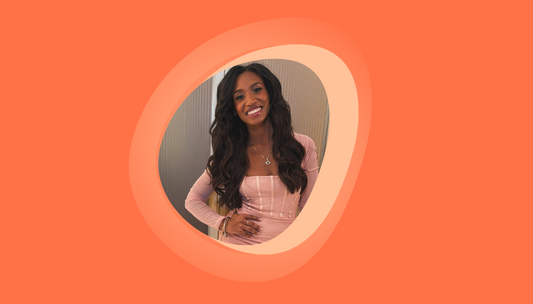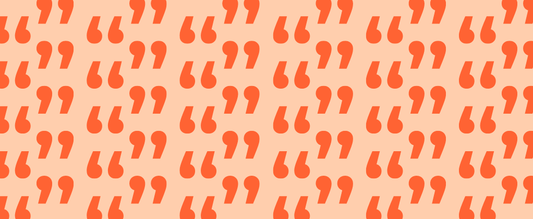The Five Emotional Stages Of Receiving An Adult ADHD Diagnosis
Read time 5 mins
I was 37, living in London and working in a fast-paced sales job for an international software company. I found aspects of the role really enjoyable; such as sales, the excitement that brought, learning about new businesses, and collaborating with a team. However, there are many areas throughout my working life that I have struggled with, such as writing and following-up with proposals, making detailed presentation decks, and reviewing contracts. I’d always assumed my struggles came from dyslexia, a condition I’d been aware of since my early school days. Tasks have always taken me longer than my peers, meaning I had to work that bit harder – staying late and working Saturday mornings from home – not to get ahead but to merely keep up! This has naturally been frustrating, but it's become a learned coping strategy, knowing this is what I needed to do to stay on track.
In my last role at the start of 2022, the working environment was particularly unforgiving, with a huge workload, large amount of pressure, and a lack of supportive management. This challenging combo led to raised stress levels, disrupted sleep, and I even started to have working memory issues. I would leave a meeting and not remember anything that was said, I became increasingly scattered and forgetful, and I struggled to focus. All this was compounded with miserable tension headaches. This deterioration in my health did nothing to help me achieve the expectations of the management team and everything got too much. I visited my GP to report my headaches and memory issues, and he referred me to a psychiatrist. I was worried - I’d never been a psychiatrist before and none of my friends or family had experience of this either.
I met with the psychiatrist in his London office. He asked a lot of questions and, after my talking away for what seemed like an age, I wondered why he was asking things that seemed completely unrelated to my tension headaches and memory issues. He asked questions about my relationships, childhood, career, family, lifestyle... when I prompted him about the purpose of the questions, his reply was ’I think you may have ADHD’.
1. Shock
I sat there, head spinning. I knew nothing of ADHD, other than that it was a disorder, and something that naughty kids had. This was terrifying – the prospect of a mental illness I knew nothing about, knew no-one else with - is this why I couldn't do my job? Will I be able to work again? So many questions. Over the following weeks I went through the full diagnosis process to confirm the psychiatrist’s initial thoughts. I found the emotional journey thereafter really difficult.
2. Resentment and feeling misunderstood
After shock, I was consumed with feelings of resentment. Why hadn’t my teachers or parents picked up on this before? Growing up, I ticked all the classic boxes of having attention deficit hyperactivity disorder, so why wasn’t this spotted? If it had been, I’d have been better understood. I felt I’d underachieved because it hadn’t been identified, having been forced to learn in specific ways that didn’t suit my brain. Looking back these things stuck out:
-Being made to sit for hours without being allowed to move.
-Being made to sit to do homework before being able to run around or exercise, which was something I craved.
-Being made to feel that I was performing badly, behaving badly, and told consistently I was underachieving due to not trying hard enough.
There were also relationships in adult life that broke down because my behaviour and a lack of understanding of that behaviour caused problems. This all left me wondering ‘what if’? Would I still be in that relationship, still have that set of friends, have stayed in that job I liked, achieved good grades, avoided that situation..? How much better could life have been with a little bit more understanding and compassion from the people around me?
3) Disconnected
I then experienced an odd sense of loss, and a feeling that I was very different to those around me. The job I was struggling in - with no support and kindness from management – I didn’t want to be there. I felt that no one really understood me and felt lonely and strangely disconnected from society. I realised that the role I was in was clearly no good for me, so I quit. Then came the question: what could I do next, and do I have value?
4) Acceptance
This resentment - feeling let down, misunderstood and disconnected, continued – not helped by no longer having work to fill my day. I deep dived into what ADHD really is. I started to look past the disorder, and the negative language used by the large health organisation websites that I’d first been faced with after the diagnosis. I began to read and watch good quality, informative content on ADHD and my feelings started to change. I told my close friends about my ADHD diagnosis. Aside from being lovely and supportive, they told me they were not surprised, and many knew other friends with ADHD. I reached out to these friends, and we shared stories and connected over our experiences – they recommended more good content and shared their journeys. I had allies.
I realised that the negative behaviours in my past could be understood, and I felt a feeling of forgiveness towards myself. I moved on from blaming people for not spotting my ADHD symptoms - they all wanted the best for me and would have realised if they knew more about it, right? I started to find solidarity and support in the wave of ADHD content popping up online, celebrities speaking out and the growing awareness of the condition.
5) Embracing ADHD
I soon realised that if I had lived my life with the knowledge of having ADHD, things would have been so much better. That is what it is. However, at 37 I still had a few years to go, and this was information I could embrace and allow to inform my future decisions, and the way I lived my day-to-day life. It also allowed me to accept and understand mistakes made in the past and start to be much kinder and more forgiving to both my past self and the present one.
Alongside this much kinder and more forgiving version of me, ADHD, I realised, was the reason for my most positive traits. ADHD energy drives my spontaneity, my sense of fun, my justice sensitivity, my creativity and entrepreneurism. It’s also responsible for the worst: the emotional dysregulation, being easily irritated, and a feeling of never being content. However, with more understanding of what causes these feelings and behaviours, I felt better able to manage the pitfalls. I’m setting up my life in a way that embraces the huge positives of ADHD, allowing me to achieve more and be happy.

Christmas, alone (in my head… and kind of loving it)
Read time 4 mins

Healing your inner critic
Read time 6 mins

From Struggle to Support: The Journey That Inspired get dopa
Read time 5 mins






